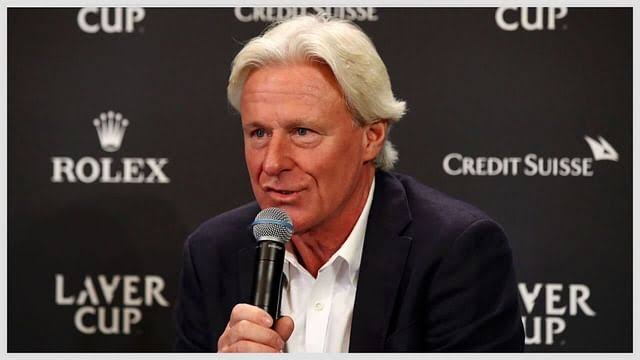
Björn Borg’s decision to retire from professional tennis in 1983 marked the end of a remarkable era in the sport. Widely regarded as one of the greatest players of all time, Borg’s departure from the game came as a shock to many. His career had been nothing short of legendary, defined by an era of dominance that changed the landscape of tennis.
Borg’s ascent in tennis began in the mid-1970s when he first showcased his extraordinary talent. Known for his impressive physical conditioning and tactical prowess, Borg’s game was characterized by his powerful baseline play and exceptional mental fortitude. His signature two-handed backhand and relentless baseline rallies were revolutionary, setting new standards for the game.
The pinnacle of Borg’s career was his dominance on the Grand Slam circuit. From 1974 to 1981, he amassed a total of 11 Grand Slam singles titles. This included five consecutive Wimbledon championships from 1976 to 1980, a feat that remains unmatched in the Open Era. Borg’s success on grass was complemented by his equally impressive performance on clay courts, where he won six French Open titles between 1974 and 1978. This combination of triumphs on two very different surfaces highlighted his versatility and exceptional skill.
Borg’s rivalry with John McEnroe, who was known for his fiery temper and charismatic play, was one of the most captivating narratives in tennis history. Their matches, particularly the epic 1980 Wimbledon final, were marked by high drama and intense competition. Borg’s victory in that match, in a thrilling five-set encounter, is often cited as one of the greatest finals in the sport’s history. The contrasting styles and personalities of Borg and McEnroe made their encounters a focal point for tennis fans around the world.
Despite his success, Borg’s retirement was abrupt. In 1983, at the age of 26, he announced that he would be stepping away from professional tennis. This decision came as a surprise, given that Borg was still at the height of his powers. The reasons behind his retirement were multifaceted. Borg had faced increasing pressure and media scrutiny, which took a toll on his mental health. Additionally, the demands of professional tennis, combined with the physical and emotional strains of maintaining peak performance, played a role in his decision.
Borg’s departure marked the end of a dominant era in tennis. His retirement paved the way for a new generation of players, including McEnroe, Jimmy Connors, and later, players like Stefan Edberg and Boris Becker. Despite his early exit from the sport, Borg’s impact on tennis was profound. His style of play influenced future generations, and his achievements set new benchmarks in the sport.
In the years following his retirement, Borg’s influence continued to be felt. He remained a respected figure in the tennis community, known for his contributions to the sport both on and off the court. His legacy endured through his records and the memories of his extraordinary performances. Even after leaving the game, Borg’s name remained synonymous with excellence in tennis.
Björn Borg’s decision to retire in 1983 not only concluded a remarkable chapter in tennis history but also left an enduring legacy. His career achievements and the way he transformed the sport continue to be celebrated, ensuring that his influence remains a significant part of tennis’s rich history.
Leave a Reply